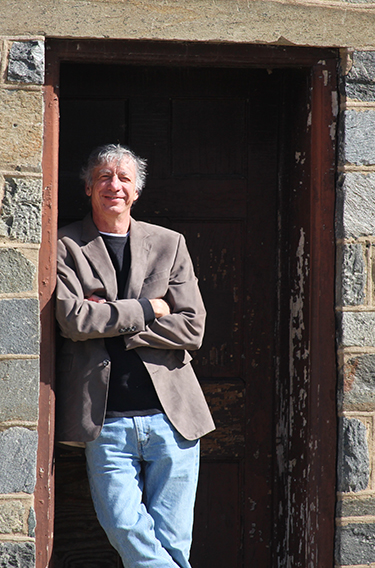

Photo credit: Bill O'Brian

I was born in Baltimore and raised a couple of blocks outside the city line, and I’ve known Washington, 33 miles away, all my life. As a boy, I watched President Eisenhower ride in a parade along Pennsylvania Avenue, and I came to Washington the weekend President Kennedy was killed. As teenagers, my cousin and I clambered around on the roof of the Capitol's House chamber.
I went to college at Harvard — an experience that truly opened up my world — yet kept a familiarity with Washington. After my freshman year, I worked as a congressional intern and, upon graduation, as a Nader’s Raider.
While doing graduate work in American studies at the University of Texas (Austin), I started in journalism at the Texas Observer, a liberal fortnightly in Austin. This was more fun — American studies in the real world — so I dropped out. After working at a suburban daily newspaper and then an “alternative” weekly near Boston, I moved back to Washington in time to watch President Carter walk in his Inaugural parade.
I’ve written about the nation’s capital and its political, social, and cultural dynamics ever since, first as a reporter and then the editor of The Energy Daily, then for 15 years as a staff correspondent at National Journal. At the nonpartisan weekly magazine, I covered the White House, lobbying, and other aspects of how Washington works. I won the Gerald R. Ford Prize for Distinguished Reporting on the Presidency for 1991, and spent the $5,000 to take my wife and young children to Singapore and the Indonesian island of Sumatra (instilling in both kids a love of travel). I am currently a contributing editor at The Atlantic, where I’ve edited three special issues, on JFK, World War I, and Martin Luther King.
My adventures in writing books started with a labor of love, Where They Ain’t, a nonfiction account of my beloved Baltimore Orioles and the team’s origins in the 1890s. GQ named it as one of the 20 best books of the millennium, and the Boston Globe said it “possesses the pace, sense of character, and evocative power of a novel.” My next two books, narrative histories of Washington, also read like novels.
The natural next step was a novel that is nearly nonfiction. The Murder of Willie Lincoln, another labor of love, took five years to research and write. I found fiction harder than nonfiction—many more things have to go right. At an agent’s suggestion that a series detective needs quirks, I made John Hay into a poet (which he actually was) and a boxer. I wrote bad poetry in college and took up boxing at age 61, so I empathize with my detective’s pursuits. It was a bout of cancer that gave me the nerve to start boxing and to write a novel, so I’m grateful for that.
In The Attempted Murder of Teddy Roosevelt, I have continued Hay’s exploits forty years later, when he’s 63. This is much closer to my age, and I shifted from third person to a first-person point of view, to delve deeper into his character. I hope that readers find him a cool and witty companion for an adventure into the original Age of Roosevelt.
© Burt Solomon | Contact